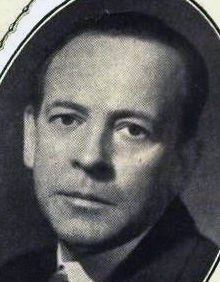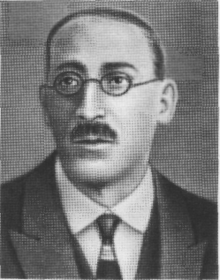에피스트리올
Epiestriol | |
| 임상 데이터 | |
|---|---|
| 상호 | 악트리올, 아르카기닐, 크리마도랄 |
| 기타 이름 | 에피오에스트리올, 16β-에피스트리올, 16-에피스트리올, 16β-히드록시-17β-에스트라디올 |
| 루트 행정부. | 입으로 |
| 약물 클래스 | 에스트로겐 |
| 식별자 | |
| |
| CAS 번호 | |
| PubChem CID | |
| 켐스파이더 | |
| 유니 | |
| 첸블 | |
| CompTox 대시보드 (EPA ) | |
| ECHA 정보 카드 | 100.008.126 |
| 화학 및 물리 데이터 | |
| 공식 | C18H24O3 |
| 몰 질량 | 288.387 g/120−1 |
| 3D 모델(JSmol) | |
| |
| |
에피에스트리올(INN브랜드명 악트리올, 아르카기닐, 클림도랄) 또는 에피오에스트리올(BANEpioestriol)은 16β-에피스트리올 또는 단순히 16β-에피스트리올이라고도 하며, 16β-히드록시-17β-에스트라디올(Epriol, 16β-17β-Epiestriol)의 약소이다.에피스트리올은 [1]여드름 치료에 임상적으로 사용된다.에스트로겐 작용 외에도 에피스트리올은 글리코겐 활성이나 면역 억제 효과가 없는 유의한 항염증 특성을 가지고 있는 것으로 밝혀졌는데, 이는 히드로코르티손(글루코코르티코이드)[3][4]과 같은 기존의 항염증 스테로이드와 대조되는 흥미로운 발견이다.
| 컴파운드 | PR | AR | ER | GR | MR | SHBG | CBG | ||
|---|---|---|---|---|---|---|---|---|---|
| 에스트라디올 | 2.6 | 7.9 | 100 | 0.6 | 0.13 | 8.7 | 0.1 미만 | ||
| 알파트라디올 | 1 미만 | 1 미만 | 15 | 1 미만 | 1 미만 | ? | ? | ||
| 에스트리올 | 1 미만 | 1 미만 | 15 | 1 미만 | 1 미만 | ? | ? | ||
| 16β-에피스트리올 | 1 미만 | 1 미만 | 20 | 1 미만 | 1 미만 | ? | ? | ||
| 17α-에피스트리올 | 1 미만 | 1 미만 | 31 | 1 미만 | 1 미만 | ? | ? | ||
| 값은 퍼센트(%)입니다.참조 배위자 (100%)는 의 경우 프로게스테론, 의 경우 테스토스테론, 의 경우 알도스테론, 의 경우 알도스테론, 그리고 의 경우 코르티솔이었습니다. | |||||||||
「 」를 참조해 주세요.
레퍼런스
- ^ a b Elks J (14 November 2014). The Dictionary of Drugs: Chemical Data: Chemical Data, Structures and Bibliographies. Springer. pp. 899–. ISBN 978-1-4757-2085-3.
- ^ Labhart A (6 December 2012). Clinical Endocrinology: Theory and Practice. Springer Science & Business Media. pp. 522–. ISBN 978-3-642-96158-8.
- ^ Latman NS, Kishore V, Bruot BC (June 1994). "16-epiestriol: an anti-inflammatory steroid without glycogenic activity". Journal of Pharmaceutical Sciences. 83 (6): 874–7. doi:10.1002/jps.2600830623. PMID 9120824.
- ^ Miller E, Bates R, Bjorndahl J, Allen D, Burgio D, Bouma C, Stoll J, Latman N (November 1998). "16-Epiestriol, a novel anti-inflammatory nonglycogenic steroid, does not inhibit IFN-gamma production by murine splenocytes". Journal of Interferon & Cytokine Research. 18 (11): 921–5. doi:10.1089/jir.1998.18.921. PMID 9858313.
- ^ Raynaud JP, Ojasoo T, Bouton MM, Philibert D (1979). "Receptor Binding as a Tool in the Development of New Bioactive Steroids". Drug Design. pp. 169–214. doi:10.1016/B978-0-12-060308-4.50010-X. ISBN 9780120603084.
- ^ Ojasoo T, Raynaud JP (November 1978). "Unique steroid congeners for receptor studies". Cancer Research. 38 (11 Pt 2): 4186–98. PMID 359134.
- ^ Ojasoo T, Delettré J, Mornon JP, Turpin-VanDycke C, Raynaud JP (1987). "Towards the mapping of the progesterone and androgen receptors". Journal of Steroid Biochemistry. 27 (1–3): 255–69. doi:10.1016/0022-4731(87)90317-7. PMID 3695484.
- ^ Raynaud JP, Bouton MM, Moguilewsky M, Ojasoo T, Philibert D, Beck G, Labrie F, Mornon JP (January 1980). "Steroid hormone receptors and pharmacology". Journal of Steroid Biochemistry. 12: 143–57. doi:10.1016/0022-4731(80)90264-2. PMID 7421203.


